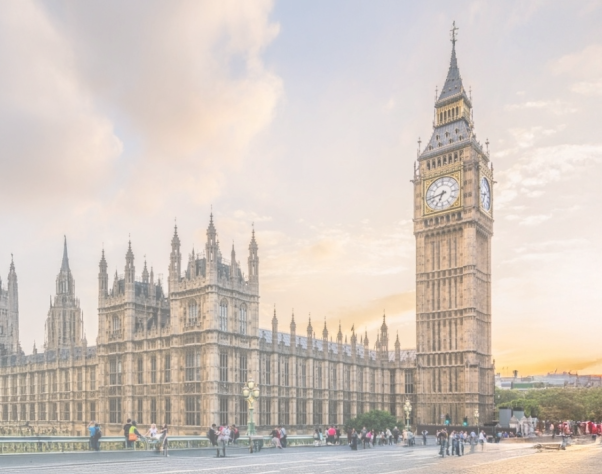Germany after election day – Merkel’s goodbye leaves conservatives in ruins
When the expected happens and everyone is still surprised it must be something special. Indeed, yesterday Germany witnessed the biggest surprise in politics since the Greens became a coalition party in 1998.
For the first time since 2005, the Union (Christian Democratic Union / Christian Social Union) will not be the strongest party in the Bundestag. Ever since Angela Merkel decided to not run for office again, the approval ratings for the Union had been continuously declining, while the ratings for the Social Democrats and the Greens increased. This trend was accelerated after the Union chose Armin Laschet, Prime Minister of North Rhine Westphalia, as their main candidate in something what can only be described as an interfamilial standoff between Markus Söder (Chair of the Bavarian sister party CSU) and Laschet (Chair of the larger CDU).
In the lead up to the election, the campaigns of every party were pervaded by mistakes by the leading candidates to be the next Chancellor. But while Armin Laschet’s and Annalena Bäerbock’s (Greens) mishaps were punished by the voters, Olaf Scholz (SPD), the eventual winner of the election was able to shrug these off with the voters.
Following a wafer-thin election result, in which the SPD (social democrats) won with 25.7% of the vote, narrowly nudging the CDU/CSU (24.1%) into second place, Germany is now likely to see a three-party coalition for the first time since the fifties.
Germany votes for change
The results in Germany show a clear shift in the distribution of seats in Parliament. According to preliminary official results the Social Democratic Party (SPD) for the first time since 2005 with 25.7 percent are again the strongest force in the German Bundestag, beating the Christian Democratic Union (CDU) by a mere 1.6 percent.
Under the leadership of Merkel successor Armin Laschet, the CDU/CSU now faces its worst result in federal elections in its history. SPD’s Olaf Scholz on the other hand was able to improve the vote share of his party by about 5 percent. With Annalena Baerbock, the Green party for the first time attempted to nominate their own candidate for the office of the Chancellor, acquiring 14.8 percent of the vote, an improvement of almost 6 percent and the strongest result in their history. The liberal party (FDP) also improved its share slightly, securing 11.5 percent. The Left (Die Linke), on the other hand, managed to narrowly remain in parliament after suffering major losses. The extreme right (AfD) consolidated its share with 10.3 percentage.
“Jamaica” or “traffic light” – the new coalition arithmetic’s
After the election there are several options for a possible coalition. Only two of them, however, seem likely. Both Armin Laschet and Olaf Scholz claimed Sunday night ambitions for the Chancellorship. The decisive factor however, will be who is to join forces with the Green and the Liberal Party. While the Green Party are on the left of the political spectrum and is a traditional partner of the SPD, for the Liberal Party it´s the exact opposite, as a traditional kingmaker of the CDU/CSU. The question is therefore which of the two would be willing to switch to the “other side”.
For the first time in recent German history a coalition of three parties could rule the country, increasing the bargaining power of the smaller parties significantly. Considering the gains of the SPD (red) and the Green Party a traffic light coalition with the Liberal Party (yellow) seems as the most likely option. However, the main barriers are the fiscal balance, the willingness to incur debts and the introduction of higher taxes for the wealthy – all aspects which have been previously rejected by the Liberal Party.
The “Jamaica” coalition under the leadership of the CDU/CSU (black) with the Green and Liberal parties as junior partners would be the preferred option of the Liberals and the only way to make Armin Laschet the new Chancellor. The dissent with the Green Party is, however, high and aspects of climate protection, social inequality and state regulations show substantial disagreement between the two. The current grand coalition with SPD and CDU also has a majority but seems very unlikely since both sides have expressed their lack of conviction for this option.
Perspectives of change – Key take-aways for what the election means for engaging with government in Germany
The election result signals a major agenda for change in German politics that also requires policy managers to review their approaches to stakeholders and policies. Here are our six key take-aways:
1. Anticipate an agenda of change: Rather than going for the old provide solutions that embrace the new. The call is clear, the electorate expects a new chancellor and the Government to push for new approaches in tackling the fundamental challenges of climate policies, digitization, energy, mobility, urban development, social, economic, and financial sustainability. Against this background, the upcoming coalition negotiations will be as difficult and complex as the issues any new German government will have to address.
2. Focus beyond the Chancellery: Observe those other power channels beyond the Chancellery in the Cabinet, Parliament, and parties. Whether for election winner Olaf Scholz of the SPD, or any other candidate, the wafer-thin election result means that no new Chancellor will be able to rely heavily on a personal or party power base, at least until his or her position has been established firmly. The new Chancellor will find it harder to govern and the Chancellery itself will not excel the same single influence as it did in the past.
3. Rise of the Parliamentary Groups: Establish your links across parliamentary groups, not only within. In view of the complex coalition constellations, the parliamentary factions and their leaders will gain more influence in policy formulation and coordination. After all, the new Chancellor will need those networks and majorities in Parliament to push the agenda of change.
4. Profile through the ministries: Provide perspectives across policy lines and executive competences. As the new coalition moves into operations, the parties will seek to enhance their political profile through the executive power of the ministries led by members of their party. This will also mean exerting influence through a ministry on policies outside its field of competence.
5. Embrace the new diversity: The likely new coalition set up is a reflection of the unclear majority situation in parliament. But the rising complexity is also an opportunity to better engage new majorities as all groups seek to put their policy imprint on change. Relying on one or two parties alone will no longer be enough, instead embrace the diversity of the many coalition players to push better solutions relevant for all.
6. Change in EU leadership role: In the EU, Germany’s role will be weakened, at least for the time being. The new government will have to establish its policies and consolidate its leadership first, both publicly and in parliament. Until then, other member states will seek to fill in the temporary weak spot. But as the change agenda kicks in, so will also the gravitational pull of Germany’s policies for other states, strengthen the Government’s role at EU level. All the more important to connect with the movers and shakers in Germany now to manage change in the EU in the medium term.
The main perspective in Germany today is that of change for tomorrow. The many national, European, and global challenges make the new legislative period a tough one for the new German government. But for those that are willing to provide a positive solution, this is also a time of opportunity – for making an impact in long-term policy-making in Germany and beyond. So get in touch!



